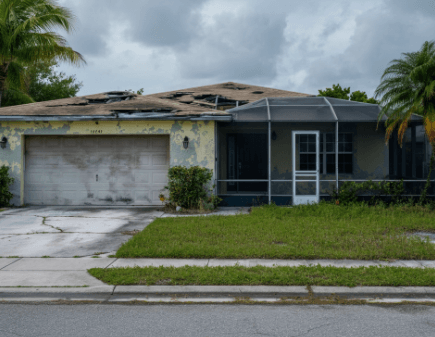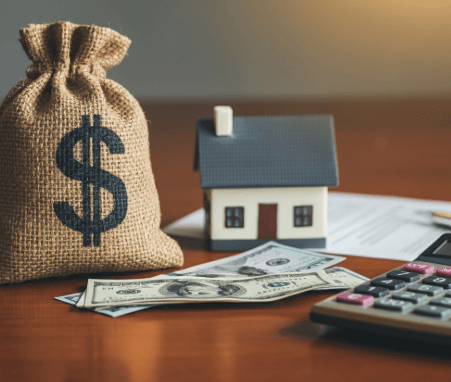Looking to sell your home in Cape Coral? The median home price in the area is around $400,000. Many homeowners believe listing their property is the only way to get the most from their investment. However, a traditional sale isn’t always the best fit for everyone’s timeline or financial goals. Exploring the alternatives to selling your house in Cape Coral, Florida, can unlock options you may not have considered, such as renting it out or pursuing a lease-to-own agreement. Steve Daria and Joleigh, experienced real estate investors and cash house buyers, help homeowners explore all their options. They provide clear, straightforward solutions that go beyond simply listing with an agent. Before you commit to a single path, it’s wise to understand all the alternatives to selling your house in Cape Coral, Florida. Schedule a free discussion with Steve and Joleigh today to explore a tailored strategy for your specific needs.
Key Points
- Rent Out Your Property: Transform your house into an income-generating asset by becoming a landlord. Renting allows you to cover your mortgage and other expenses while building equity, making it a strong long-term investment, especially in a popular area like Cape Coral.
- Offer a Lease-to-Own Agreement: Attract a wider pool of potential buyers by offering a lease-to-own or rent-to-own option. This arrangement enables a tenant to rent the home for a specified period, with the option to purchase it later, allowing them time to secure financing.
- Consider a Home Equity Loan: If you need cash but don’t want to move, a home equity loan or HELOC might be a good option. This allows you to borrow against your home’s value, providing funds for renovations, debt consolidation, or other major expenses without selling.
- Short-Term Vacation Rentals: Take advantage of Cape Coral’s tourism by renting out your property on platforms like Airbnb or Vrbo. This can generate significant income, especially during peak seasons, and offers more flexibility than a long-term lease.
- Sell Your Home to a Cash Buyer: For a fast and simple solution, consider selling directly to a cash home buyer. This approach means no repairs, no showings, and no realtor commissions. You can close quickly and get cash for your property as-is.
What are some common reasons to look for alternatives to selling my house?
Many homeowners consider alternatives to selling their house in Cape Coral, Florida, for a range of personal and financial reasons.
Sometimes, you need quick access to cash but prefer not to move, making a home equity loan a better fit.
In other instances, the property might require extensive repairs that you don’t have the time or funds to complete before selling.
Generating passive income is another common goal, so renting out the property can be a more attractive option than selling.

If you’re facing foreclosure or need a swift solution, going through the traditional sales process with a real estate agent may not be practical.
These are just a few situations where exploring alternatives to selling your house in Cape Coral, Florida, makes sense.
Maybe you’ve inherited a property and want a faster, simpler transaction without showings or negotiations.
Ultimately, exploring all your options enables you to find the best fit for your unique needs and goals—something a traditional sale may not always offer.
Get An Offer Today, Sell In A Matter Of Days
Are there other options besides listing my Cape Coral property with a real estate agent?
Yes, there are several excellent options besides listing your Cape Coral property with a real estate agent.
A traditional sale isn’t always the best fit, especially if you need to sell quickly or your house needs repairs.
One popular option is to rent out your property, converting it into a steady monthly income source.
You could also offer a lease-to-own agreement, which attracts buyers who need more time to secure a traditional mortgage.
Another powerful option is selling directly to a cash home buyer, which allows you to bypass showings, repairs, and agent commissions entirely.
These alternatives to selling your house in Cape Coral, Florida, offer flexibility that standard market listings often lack.
For instance, a cash sale can often close in a matter of days, not months.
By exploring these options, you can discover a solution that aligns with both your budget and timeline.
What are the pros and cons of renting out my house instead of selling it in Cape Coral, Florida?
PROS
- Generate Passive Income: Renting your property brings in steady monthly income, which can help cover mortgage, taxes, and insurance. This cash flow can build over time, turning your home into a profitable long-term investment.
- Build Long-Term Equity: By holding onto your property, you continue to build equity as the mortgage is paid down and the home’s value potentially increases. Cape Coral’s growing market could significantly increase the value of your asset in the future.
- Maintain Flexibility: Renting gives you the option to move back into the house later or sell it when market conditions are more favorable. This flexibility keeps your options open, unlike a permanent sale.
CONS
- Landlord Responsibilities: Landlords handle maintenance, repairs, and tenant management, which can be demanding and time-consuming. Unexpected issues, like a broken AC unit or finding new tenants, fall on your shoulders.
- Risk of Bad Tenants: Dealing with tenants who pay rent late or damage the property poses a significant risk, which can lead to costly evictions and repairs. A bad tenant can be a costly problem for any landlord.
- Ongoing Expenses: Even with rental income, you are still responsible for property taxes, insurance, and HOA fees, which can increase over time. The property might also be vacant between tenants, leaving you to cover all costs without any income.

How does a lease-to-own agreement work for a property in Cape Coral, and who is it best for?
A lease-to-own agreement (also called a rent-to-own agreement) lets a tenant rent a property for a set time with the choice to buy it before the lease ends.
A portion of the monthly rent contributes to the down payment, allowing the tenant to build equity.
This arrangement is ideal for aspiring homeowners in Cape Coral who have a stable income but need more time to save for a down payment or improve their credit score to qualify for a traditional mortgage.
For sellers, it can attract a larger pool of serious buyers and provide a steady rental income while the sale is pending.
It’s one of the most practical alternatives to selling your house in Cape Coral, Florida, as it creates a clear path to a sale.
The agreement locks in a purchase price, which benefits the buyer if home values rise.
This option is best suited for sellers who aren’t in a rush to receive their cash and for buyers who are committed to purchasing the home.
It creates a win-win situation for both parties by providing a structured and secure path to homeownership.
What are the financial implications of choosing a home equity loan over selling my house in Cape Coral, Florida?
- You Keep Your Asset: By choosing a home equity loan, you retain ownership of your property, allowing it to continue appreciating. This means you can still benefit from Cape Coral’s real estate market growth over the long term.
- You Take on New Debt: A home equity loan is essentially a second mortgage, meaning you will have another monthly payment to make. You must be confident that you can afford this new debt obligation in addition to your existing expenses.
- Lower Closing Costs: The upfront costs associated with securing a home equity loan are typically much lower than the expenses of selling a home. Avoid real estate agent commissions and save thousands.
- Your Home is the Collateral: The loan is secured by your property, so if you don’t make payments, the lender could take ownership of your home through foreclosure. This risk is a critical factor to consider before borrowing against your equity.
- Interest Payments: Unlike selling, where you receive a lump sum of cash, a home equity loan requires you to pay back the borrowed amount with interest over time. These interest payments are an added cost that reduces the net cash you ultimately access from your equity.
What steps do I need to take to turn my Cape Coral home into a long-term rental property?
Converting your Cape Coral home into a long-term rental requires a few important steps to make sure everything runs smoothly and legally.
First, you’ll need to prepare your property for tenants by making necessary repairs and ensuring it meets local safety codes.
Next, it’s wise to research the local rental market to set a competitive rent price.
You should also familiarize yourself with Florida’s landlord-tenant laws to understand your rights and responsibilities.
This includes creating a solid lease agreement that outlines all terms and conditions for your tenants.
Marketing your property and thoroughly screening potential renters through background and credit checks is a crucial step to finding reliable occupants.
Exploring options like this is one of the smartest alternatives to selling your house in Cape Coral, Florida, as it can create a steady income stream.
Once you have a tenant, you will need a system for collecting rent and handling maintenance requests.
For personalized guidance on managing a rental property, reach out to a property manager to schedule a complimentary consultation and discuss your unique situation.
**NOTICE: Please note that the content presented in this post is intended solely for informational and educational purposes. It should not be construed as legal or financial advice or relied upon as a replacement for consultation with a qualified attorney or CPA. For specific guidance on legal or financial matters, readers are encouraged to seek professional assistance from an attorney, CPA, or other appropriate professional regarding the subject matter.

